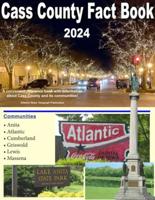The headline in Wednesday’s paper declared Carol Garrett the winner of the mayoral race by four votes. As I read on Tim Tieg called for a recount, a logical request given the few votes that separated them. What shocked me was lack of voters in this runoff — the number of people who voted in this non partisan race was an appalling 1,174.
I called Dale Sunderman, Cass County Auditor to ask about the number of eligible voters. Dale responded that there are 4,819 registered voters in Atlantic. That number includes Democrats, Republicans and No Party. Approximately 24% of eligible voters decided the next mayor for Atlantic. This is not just a problem for Atlantic or Cass County, low voter turnout is a problem in the United States where we place high value on the right to vote but vote low numbers.
The rate of voting made me curious to look at statistics from around the world. According to https://worldpopulationreview.com/country-rankings/voter-turnout-by-country the United States ranked 26th on a list of thirty five countries, trailing most developed countries in voter turnout. Way too low in my opinion.
The top five countries in voter participation are 1. Belgium 2. Sweden 3. Denmark 4. Australia 5. South Korea. What is it that inspires the people of these countries to vote? It’s a question that I do not have time to research, but it does make one think. We Americans who brag about our freedoms and our rights seem to lack a firm commitment to our democracy when only 66.5% show up to vote.
I was encouraged by data that indicated the 2020 election voter turnout was the highest since 1900, up from 2016 when only about 55.72% of eligible voters voted. Perhaps we are on a roll and numbers will continue to rise in the future.
Why can’t we get more voters to the polls to participate in a fundamental citizen’s right? There are a number of reasons for this. Historically there has been voter suppression in various forms and recently there have been new laws make voting harder.
The Brennan Center for Justice, a non-partisan law and policy institute states that 19 states have enacted 33 laws that will make it harder for Americans to vote. Iowa is among those states. The changes include a shorter early voting period, an earlier due date for absentee ballots, restrictions on how many ballot drop boxes a county can have and who can drop off another voter’s ballot, and penalties for election misconduct. Most auditors in the state of Iowa were not happy with these changes because in the past there has been very little voter fraud.
While these more restrictive laws were being implemented, there were twenty five states that enacted laws that expanded voting access. It makes my head spin to try to make sense of why some states are making it harder and some states are making it easier.
In order to alleviate the inconsistencies from state to state Congress is working on a voting rights bill known as the For the People Act. A major piece of this legislation is to take big money out of campaigns in order to lessen the influence of money in politics.
I don’t believe that money has an impact on our local elections, but it certainly does on our state, congressional and presidential elections. Corporations and individuals have undue influence over our politicians and our current laws gives power to those with money. This is dangerous to our democracy and at the very root of the instability in our country today.
Voting is a right, a privilege and a responsibility. If we want a say in our government whether it be at the local, state, national or international level, it’s our responsibility to be informed and to participate. If only 24% of the people in Atlantic voted for mayor does that mean that the other 67% have no say? Not necessarily but it seems like a fair statement to make.















